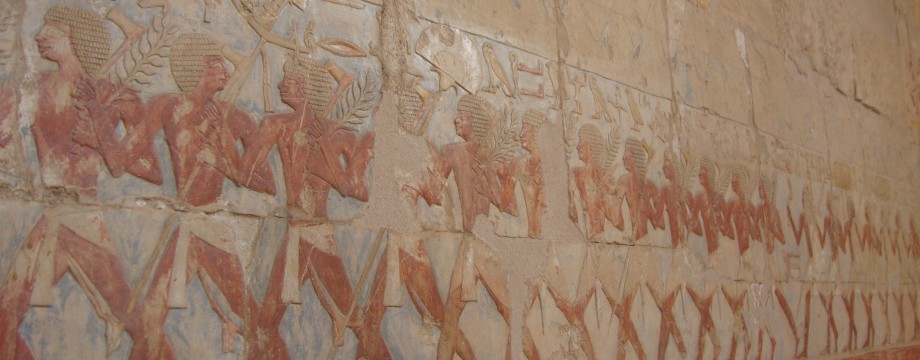Monthly Archives: August 2012
Theisms, Deisms and Egyptology.
Throughout my studies in Egyptology, I have always been fascinated with the beliefs and religion of those whose lives are preserved in the artefacts I was focussed on. It is clear that though there was no Dogma or Pharaonic Papacy stating the “official/state” line in Religion, the religious understandings of the society may be inferred from the evidence available. However, as we may only gain an understanding of small groups of people or of the ideology of a specific location/time period, then the larger questions are often left unanswered.
The language of the study of religion is complex and nuanced, this post aims to explain a few of these points so that the conclusions and discussions about the wider view of Ancient Egyptian Religion is more accessible.
Theism and Deism
– The first point to be made is the difference between Theistic and Deistic religions. Theism is based upon the premise that the world has a creator (a god/gods) who interacts with the world in the present. Deism on the other hand presumes that though the world has a creator, that creator does not intervene. Deism is a relatively modern concept (at least when called Deism anyway) first discussed in the 1600s by such writers as David Hume and Thomas Paine.
Within Ancient Egypt, we are focussed on a Theistic religion. Both necessities for this are fulfilled, 1) there is a creator (there are a number of creation myths) and 2) those creators interact with the world, this includes control of nature based on human action as well as direct interaction.
Religions differ a lot, you can have many gods, less gods, more important ones etc etc. Each variant has its own label, here’s my simple explanations of them:-
Polytheism- More than one god (The predominant ancient system and the one functioning in Ancient Egypt)
Monotheism- A single god (Whether or not Akhenaten’s religious reforms constitute monotheism has been a popular question, though not to be concluded here)
Henotheism- The worship of a specific god, whilst accepting the existence of others (this is option two for explaining Akhenaten’s religion)
Pantheism- Everything is God/Divine.
Atheism-There is no god.
Syncretism- The mixing of a number of ideas or systems to create a single one.
The possibility of defining the Ancient Egyptian Belief system is a complicated one. As I have said previously, one may only infer the true bigger picture as in no text do the Ancient Egyptians spell it out for us.
 (fromhttp://netjeru.comicgenesis.com/d/20060514.html)
(fromhttp://netjeru.comicgenesis.com/d/20060514.html)
Petrie’s Sardines
I have decided to have a redesign, reshuffle and rebrand of my blog. Essentially because I have been quite busy and have let it become a bit neglected. So a spring clean was in order- as such I will be aiming to post at least once a week on something, be it Egyptology, research, reading, museum work or any of my other diverse interests. I hope you enjoy it!
And why Petrie’s Sardines? This comes from the story which has been related to a number of Egyptologists (I read about this story in the first year of my UG degree) about the frugal habits of Sir Flinders Petrie, who, it appears was in the habit of burying the tinned supplies from one dig season and returning to them in the next. He would then throw the tins against a wall or rock, if they did not break open, then they were good to eat.
For more on Petrie:
about his digs- http://www.digitalegypt.ucl.ac.uk/archaeology/petriedigsindex.html
The museum bearing his name- http://www.ucl.ac.uk/museums/petrie
Also have a look at-
Flinders Petrie: A Life in Archaeology by Margaret Drower
Or
Egypt: How a Lost Civilisation was Rediscovered by Joyce Tyldesley
(I have an inkling that it was in this book that I heard the story of Petrie’s tinned food)
